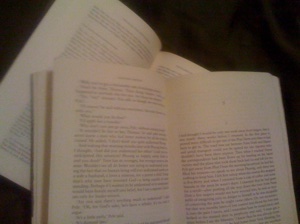“His Writers and His Lecturers Made a Fool of Him” (How Not to Understand Afghanistan)

Graham Greene’sThe Quiet American and Antonio Giustozzi’s Decoding the New Taliban — two books that I’ve started more or less simultaneously — are jostling in my brain. In the very first sentence of his introduction, Giustozzi writes words that might have come from one of the characters in Greene’s novel of 1950s Vietnam: “perhaps the folly of our age could be identified as an unmatched ambition to change the world, without even bothering to study it in detail and understand it first.”
Two men dedicated to “bothering to study” our world recommended these books I’m reading. In this summer’s World Affairs, Boston University’s Prof. Andrew Bacevich wrote, “For those today seeking to understand how the United States blundered so badly in Iraq and Afghanistan, The Quiet American remains an essential text.” On his blog, Steve Coll of The New Yorker called Decoding the New Taliban “as up-to-date as scholarship can be.”
As such, I find myself wondering whether it’s the sort of book that could have ended up alongside “The Advance of Red China, The Challenge to Democracy, The Role of the West” on the bookshelf of Pyle, Greene’s quiet American. Probably not. Decoding the New Taliban, with its 15 contributors, can’t speak in the type of facile, certain voice Pyle finds so magnetic. Consider this outburst about Pyle by Greene’s narrator:
Suddenly, I was angry; I was tired of the whole pack of them with their private stores of Coca-Cola and their portable hospitals and their too wide cars and their not quite latest guns. I said, ‘Yes. They killed him because he was too innocent to live. He was young and ignorant and silly and he got involved. He had no more notion than any of you what the whole affair’s about, and you gave him money and York Harding’s books on the East and said, “Go ahead. Win the East for democracy.” He never saw anything he hadn’t heard in a lecture-hall, and his writers and his lecturers made a fool of him. When he saw a dead body he couldn’t even see the wounds. A Red menace, a soldier of democracy.’
So, as I go forward with the promising Giustozzi book, I will try not to make a Pyle of myself. I will try to embrace Giustozzi’s assessment that scholars “need sometimes to be humble enough to recognize that their theories are not sufficiently refined or informed by empirical material and be patient. Understanding the Taliban is still very much work in progress.”





